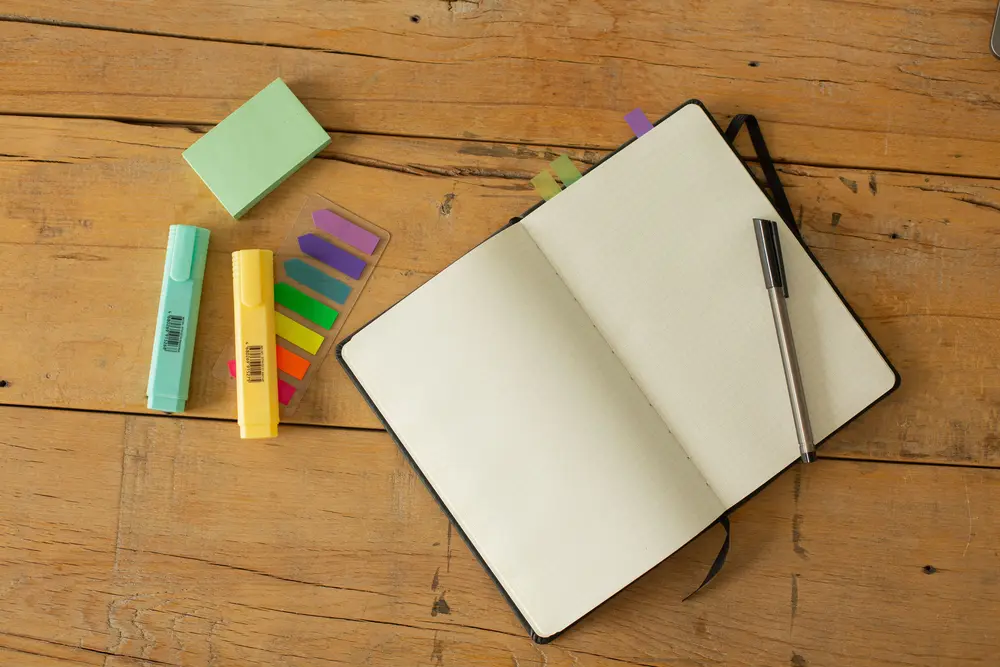
How To Improve Creative Writing Skills With Journaling
Introduction
What is Journaling
Journaling is the process of writing in a diary or book every day. You can keep a journal about your work, your personal life, or many other parts of life. Online journals are more popular in the digital age because of increased flexibility.
Your journal is personal to you. Write your thoughts and feelings. Write your dreams and your nightmares. Write your wishes and desires. Write your deepest, darkest secrets.
A good way to think of journaling is that it's a note to yourself. Come back to read it later and remember how you felt. Remember what you were doing and who you were with. It's simply a place for you to be yourself.
How Can Journaling Help To Improve Creating Writing Skills?
Your journal is just for you. You can be unashamedly yourself, which is liberating. When you appreciate the joys of writing, it boosts your creativity.
It's difficult to manufacture creativity. Inspiration can strike at any time. Write down your creative thoughts and revisit them later to boost the creative part of your brain. The nice part of creativity is that there is no right and wrong.
All your imaginative and innovative thoughts can lead to something inspirational and creative. By writing daily, you increase your chances of coming up with a unique and inspired idea.

The benefits of journaling for creative writing
Increase Creativity
Journaling on a regular basis can help boost your creativity. When you write down your thoughts and feelings, it opens your mind to new ideas. By reviewing your previous entries, you can build on your old ideas.
More Fluency
By writing your thoughts down, you can learn to write with more fluency. With lots of practice, you begin to understand how to structure your sentences with better flow and rhythm. This improves your ability to construct your thoughts.
More Clear and Concise
Many writers suffer from bloat and imprecise writing. When you make a habit of writing daily, it becomes easier to write in a clear way that gets to the point.
It's easy to learn how to write better when you focus on clarity. Being clear means getting your point across to the audience in a simple and straight-forward way. Concision comes from reducing the unnecessary information in your writing.
Remove adverbs to simplify the sentences and paragraphs without changing their meaning. Use simpler alternatives to words that are more advanced than your readers expect. Finally, break long sentences down to lighten the load on your reader's memory. Retaining words and phrases while reading a long sentence or paragraph can be hard for readers of any level.
Improve Self-Expression
You probably have lots of thoughts and ideas throughout the day. Write them down at different times of the day to improve your self-expression.
Initially, even writing incomplete notes can be enough to improve your self-expression. Over time, try to write in a more complete prose and round out your thoughts.
Expressing yourself privately in written form translates easily to other media:
- Verbally, in everyday conversations or more formal situations
- Written communication with others, like emails or letters
- Producing recorded audio or video, for work or privately
Overcome Writer's Block
Did you ever sit and stare at any empty page? You're not alone. Writer's block is a common issue faced by everyone. Even if you don't work in a creative industry or job. We all need to write and express ourselves at one time or another.
Sit down for 10 minutes each day and write out whatever thoughts come to your mind. Even if the topic differs, this is a simple cure for writer's block.
Understand Yourself
Give a name to your feelings. Throughout the day, you rarely have time to process all your feelings. Write them down at different times of the day to better understand yourself.
You can come to terms with the way you've been feeling during the day. On top of that, you can look back and reflect on those feelings later.
When you learn to process your feelings, it can lead to a greater sense of peace within yourself. If you get angry, you can learn what triggers you have. Then you can work to avoid or reduce those triggers.

Tips For Journaling For Creative Writing
Journal Every Day
The first tip is simple: write every day. Get your creativity flowing each day by finding a few minutes to write. You'll notice that the first few days are the hardest. You are starting to flex your creative writing muscles. Acquiring a new habit is difficult. Interfering with your daily routine can be a challenge. Stick with it and you'll see the rewards in no time.
It's easiest to find a timeslot that can accommodate your new habit. A typical choice is the end of the day. If you can include journaling into your nighttime ritual, it'll be simple to form a new habit. Before long, you'll be writing every night without having to remind yourself or think about it.
You can use the help of an online journaling tool to make this process easier. Check out our tips on how to make the most of Forever Diary to start a new journaling habit.
Write What Comes To Mind
Don't spend a long time thinking about what to write. You have a lot of thoughts in the course of an entire day. Start writing whatever first comes to your mind.
Don't censor yourself. Don't be too eager with editing either. Getting the words out is the primary goal.
Depending on what you're trying to achieve, you can come back later to change what you've written. The important thing is not to interrupt your creative thought process.
Read Your Writing Aloud
After you're done for the day, read your words aloud. Reading through your work will lead you to finding errors. But by reading aloud you'll also identify elements of your writing style that don't work or that you don't like. If it sounds stilted or is difficult to follow, change it up until it's better.
Do a final reading before you finish. Editing written work can sometimes change the flow of the entire piece. Be aware of that with one last check before moving on with your day.
Try Different Styles
In the beginning, you can adopt different writing styles. If you feel yourself getting stuck on a certain style, switch to another. You have complete flexibility at this early stage.
Read books, articles or stories by different authors. Then you can change your style with elements from those authors. If you have friends or family reviewing your work, you can get their feedback at this stage to see which style they like the most.
Don't Worry About Grammar
It's easy to get bogged down by small grammar mistakes. Ignore them. As you grow and your language takes shape, you'll have some gaps in your knowledge. This is normal. Don't let it hold you back. Instead, write as fluently and as creatively as you can.
Sometimes it's better to use incorrect grammar if it improves readability. If a grammatical mistake is common in speech, fixing it in your writing will make it harder to read. Keep it simple and write like you speak. Even if that means leaving mistakes in your text.
Conclusion
Journaling regularly is a great way to boost your creating writing skills. You should see fast results by starting a regular habit. Journal daily, express your thoughts and build your confidence.
Make journaling a regular addition to your daily routine. Before long, you will be enjoying the benefits of a better writing style, a wider vocabulary and enhanced creativity.